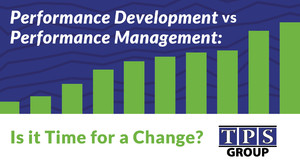Posted on Sep 4, 2020
“I’ve been doing performance reviews for the past 20 years, and I’ve never gone back and looked at any of them once they were submitted.”
“I usually just change a few words and submit the same review year after year. Sometimes my boss doesn’t even give me any feedback on it at all. But everyone’s required to fill out the form and check the box that they did it.”
Does this sound familiar? Few employees haven’t experienced the dread of the annual performance review, often tied to a merit increase. Moreover, managers dislike doing these reviews too. Study after study shows that a majority of employees believe that performance reviews fail to motivate or inspire them, or even improve performance. Yet it costs companies significant time and money to perform these evaluations, often with little to show for it.
So what does work when it comes to engaging employees and getting the most out of them? Research shows that ongoing conversations with employees regarding job expectations is far more effective than a regressive look-back once or twice a year. Gallup surveys show that what employees seek from their managers are ongoing feedback and communication, accountability, opportunities to learn and grow, and job clarity and priorities.[1]
Investing time and energy in performance development versus performance management involves giving employees continual coaching and timely, meaningful feedback to help them do their jobs better. Moving an organization to a culture of performance development is seldom easy, but large corporations such as General Electric, Cargill, Eli Lilly, Adobe, Accenture, and Google are paving the way and getting results. For example, Adobe implemented a new system of regular feedback and check-ins, ultimately reducing voluntary employee turnover by 30%.[2]
The shift in focus from an annual forced ranking to immediate performance development helps employees identify and develop their skills and competencies, ultimately benefiting the company’s bottom line. However, it’s also important for managers to be trained on how to coach their employees and structure developmental plans. One size does not fit all; what works for front-line workers in a factory may not work for professionals in healthcare or the technology industry.
Even if a reinvention of performance evaluation is not happening anytime soon in your organization, it’s worth considering that an emphasis on performance development --rather than on the same-old, same-old performance reviews - - can spark employee engagement and higher productivity.
This material is provided for informational purposes only, and is not intended as authoritative guidance, legal advice, or assurance of compliance with state and federal regulations.

